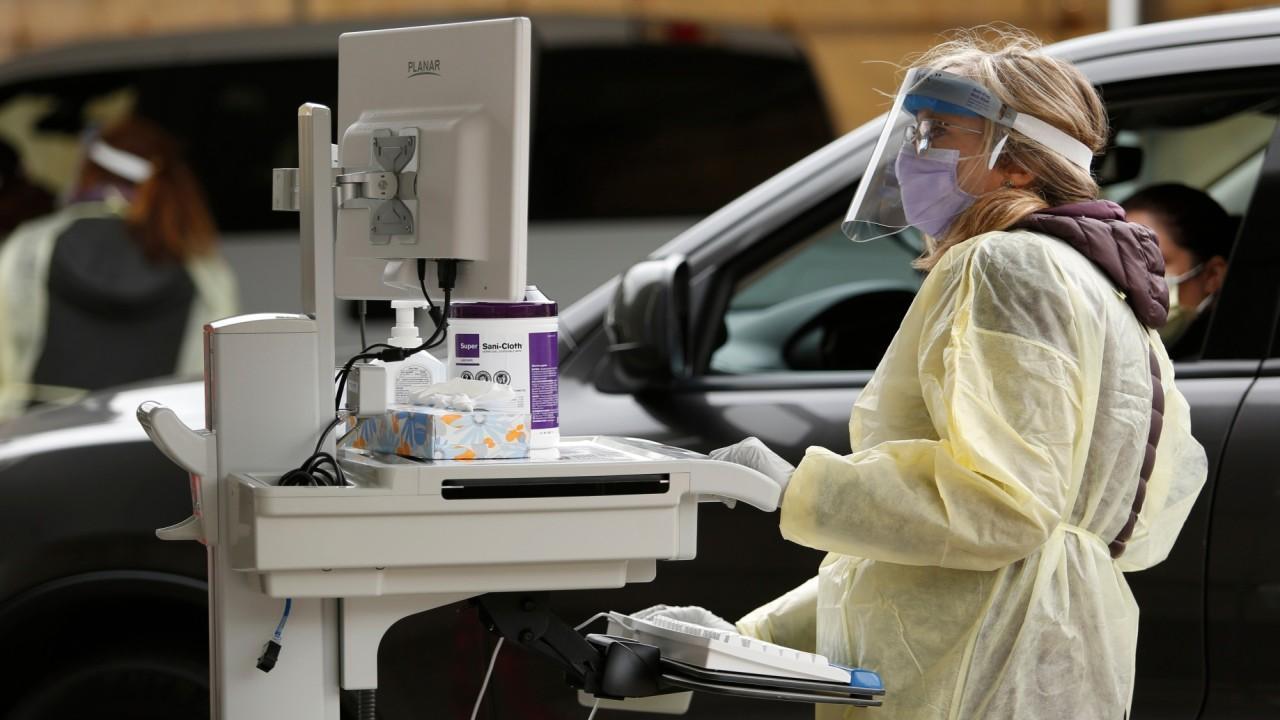Coronavirus-triggered recession likely to be deeper than 2008 financial crisis, analyst says
The virus outbreak has forced an unprecedented shut down of large swaths of the economy
Get all the latest news on coronavirus and more delivered daily to your inbox. Sign up here.
The economic pain and job losses triggered by the coronavirus pandemic will likely be worse than the 2008 financial crisis — and it could take the U.S. years to recover from the downturn, according to a new analysis.
As the virus outbreak forces an unprecedented shut down of large swaths of the economy, GDP is expected to plunge 5.4 percent in 2020, according to a forecast published by IHS Markit economists Nariman Behravesh and Elisabeth Waelbroeck-Rocha. In 2009, at the height of the worst recession since the Great Depression, GDP dropped by about 2.5 percent.
CORONAVIRUS HYPERINFLATION RISK LOOMS, BUY GOLD: PETER SCHIFF
“It will likely take two to three years for most economies to return to their pre-pandemic levels of output,” they wrote. “More troubling is the likelihood that, because of the negative effects of the uncertainty associated with the virus on capital spending, the path of potential GDP will be lower than before. This happened in the wake of the global financial crisis.”
Still, Behravesh and Waelbroeck-Rocha said a “sizable and aggressive policy response” will limit the length of the downturn and bolster the eventual recovery.
The Trump administration and Congress have launched a three-pronged response to the crisis, including a $2.2 trillion stimulus package — the largest in recent memory — that the president signed into law last week. The legislation includes cash checks of up to $1,200 for individuals who earn less than $99,000 and up to $2,400 for couples who earn less than $198,000, as well as $500 for every child; $350 billion in relief for small businesses and $500 billion in loans for industries hit hardest by the crisis.
And the Federal Reserve, facing an economic threat that its chairman, Jerome Powell, said is like no other, has unleashed its full firepower to support the economy, including slashing interest rates to near-zero, purchasing an unlimited amount of Treasurys (a practice known as quantitative easing) and launching crisis-era lending facilities to ensure that credit flows to households and businesses.
CORONAVIRUS CAUSING 'UNPRECEDENTED' US DOLLAR STRENGTH
“When it comes to this lending, we’re not going to run out of ammunition, that doesn’t happen,” Powell said last week during a rare-televised interview. “We still have policy room in other dimensions to support the economy.”
Countries around the world have implemented strict measures to slow the spread of the coronavirus, from national quarantines to school closures to restaurant and bar closures.
In the U.S., Morgan Stanley and Goldman Sachs economists are already warning the coronavirus will inflict greater economic pain than they initially forecast, plunging the country into a recession.
Unemployment is expected to surge, with a grim St. Louis Federal Reserve estimate suggesting the number of laid-off Americans could increase by 47 million, causing the jobless rate to skyrocket to a record-breaking 32 percent.




















